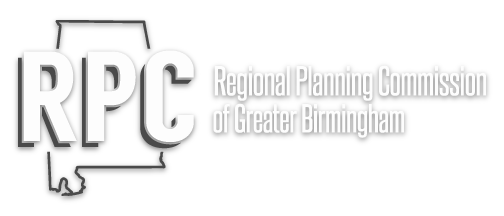Building Communities Grant Program
Click the button below to download and view the high resolution fact sheet.
Sept 2025 Update after Regional Municipal Elections
We anticipate a significant number of project inquiries in the coming months, particularly after new elected officials are sworn in this November. To manage this demand, we will wait until late January 2026 to review all requests. At that point, we will determine which projects will be developed in-house by the Community Planning team and which ones will be assigned to our on-call planning consultants.
The 80% federal / 20% local funding available through the RPCGB’s Building Communities Grant Program would continue to apply, regardless of whether the project is developed by the RPCGB staff or our on-call consultant team.
In the meantime, to secure a spot in our 2026 pipeline of projects please fill out this Building Communities Grant Program application and return back to RPCGB Principal Planner Lindsay Puckett at lpuckett@rpcgb.org.
Program Eligibility for the Building Communities Grant Program
Municipalities are eligible if they are located within the Birmingham Metropolitan Planning Area, which includes all of Jefferson and Shelby Counties and portions of St. Clair and Walker Counties.
Plans/projects must have a transportation component to be eligible for funding.
Municipalities with existing Comprehensive Plans must be at least 8 years old to qualify for funding.
Zoning Ordinance updates are not currently eligible types of projects for this grant program.
The Building Communities Program cannot be used to develop “Strategic Plans”, the program is primarily used to develop Comprehensive Plans. Below is the difference between a Strategic Plan and a Comprehensive Plan:
Comprehensive Plans:
Covers a longer horizon (5–15 years).
Serves as the blueprint for physical development and land use citywide.
Must be developed under Sections 11-52-8 and 11-52-9 of the Code of Alabama.
Addresses land use, zoning, transportation, city facilities, environment, public services, economic vitality, and placemaking.
Requires extensive public involvement to reflect community needs and aspirations.
Strategic Plans:
Covers a short-term horizon (3–5 years).
Functions as an organizational tool for elected officials and city leaders.
Focuses on key issues, priorities, and resource allocation.
Typically includes: vision statement, mission, goals, strategies, and performance indicators

